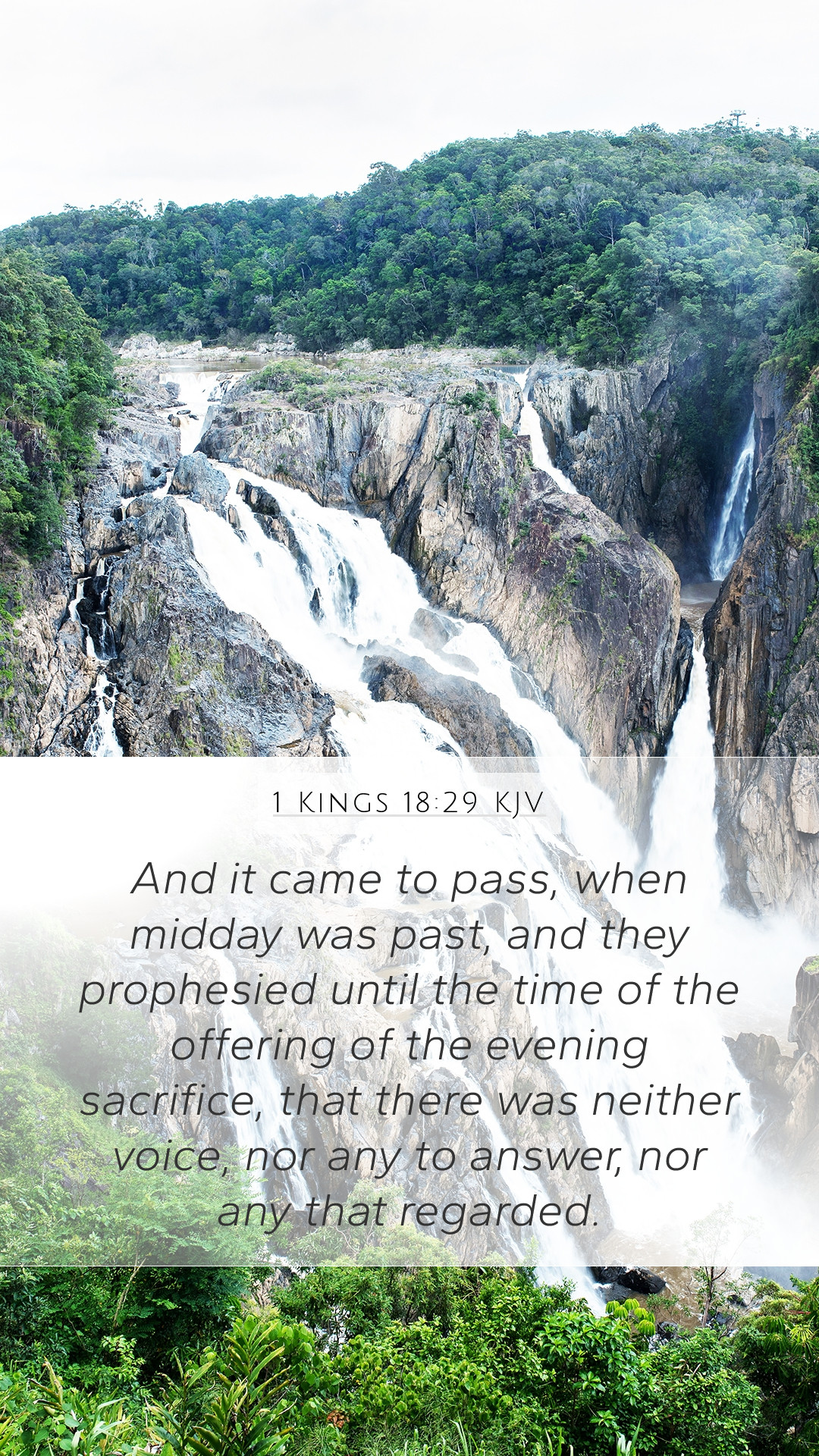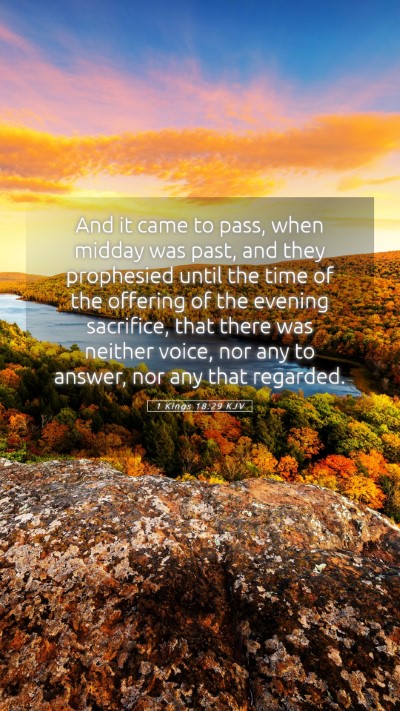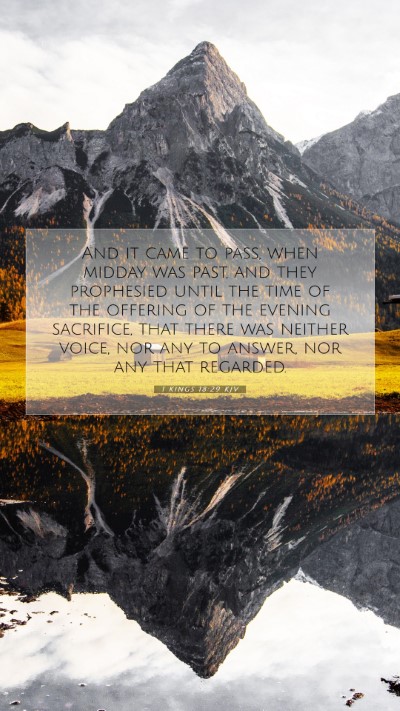Understanding 1 Kings 18:29
This passage is part of the account of Elijah's confrontation with the prophets of Baal on Mount Carmel, a pivotal moment in Israel’s history. In 1 Kings 18:29, we witness the fervor and desperation of the prophets of Baal as they call upon their god during their attempts to invoke a response.
Bible Verse and Context
Bible Verse: “And it came to pass, when midday was past, and they had prophesied until the time of the offering of the evening sacrifice, that there was neither voice, nor any to answer, nor any that regarded.” (1 Kings 18:29)
This verse illustrates the futile attempts of the prophets to elicit a response from Baal. The context involves a challenge proposed by Elijah to demonstrate who is the true God.
Insights from Commentators
-
Matthew Henry:
Henry emphasizes the despair and exhaustion of the prophets of Baal, noting that despite their fervent cries and physical efforts (like cutting themselves), there was no response from Baal. This vividly illustrates the impotence of false gods compared to the true God of Israel.
-
Albert Barnes:
Barnes highlights the contrast between the prophets' persistent cries and the silence of Baal. He points out that this silence signifies God's sovereignty and the futility of idol worship. The passage reinforces the theme that true worship calls for genuine engagement that Baal could not provide.
-
Adam Clarke:
Clarke elaborates on the ritualistic practices of the prophets, stressing their desperation as they went to great lengths to draw a response from Baal. The verse serves not only as a depiction of their failure but also as a critique of the empty religion devoid of sincerity and power.
Key Themes and Interpretations
The silence of Baal becomes a profound commentary on the nature of true worship versus false worship:
- Futility of False Gods: The actions of the prophets, filled with zeal but ultimately fruitless, showcase the emptiness of idol worship.
- The Challenge of Faith: Elijah’s challenge highlights the need for genuine faith and trust in God, contrasting the false prophets’ misguided efforts.
- The Nature of Divine Communication: This verse challenges believers to reflect on how they communicate with God and the importance of authenticity in their prayers.
Application and Relevance
The insights from this verse resonate deeply, especially in the context of applying Scripture to daily life:
- In reflecting on the effort invested in seeking divine answers, believers are encouraged to consider the sincerity and intent of their own prayers.
- This passage can serve as a reminder of the dangers of relying on external rituals without true faith.
- Believers are called to evaluate the ‘gods’ they serve in their lives, ensuring that they devote themselves to the one true God rather than succumbing to modern idols.
Cross References
- 1 Kings 18:24: Elijah proposes that both he and the prophets of Baal prepare sacrifices to demonstrate God’s power.
- Psalm 115:4-8: A psalm emphasizing the characteristics of idols, depicting them as mute and powerless.
- Matthew 6:5-6: Jesus teaches about the significance of genuine prayer versus performative worship.
Further Study Resources
For those looking to delve deeper into Bible verse meanings and interpretations, consider exploring the following:
- Bible study guides for understanding Scripture in various contexts.
- Online Bible study tools to aid in scripture analysis and interpretation.
- Participating in Bible study groups to engage with different perspectives on Biblical passages.
Conclusion
1 Kings 18:29 serves as a striking reminder of the nature of true worship versus the emptiness of idolatry. Through the insights gained from public domain commentaries and cross-references, believers can deepen their understanding and application of this significant passage in their spiritual lives.


